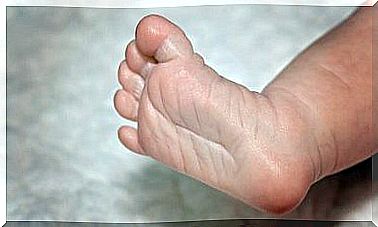Intelligence Is Inherited From The Mother, Polls Say

For women, the fact that a man is intelligent is very important. Perhaps we are trying to improve our offspring. However, apparently the genes related to intellect are inherited from the mother, which is quite understandable.
Science has shown that if there are intelligent men, it is because their respective mothers have passed on this ability to them. Somehow, we gained ground in relation to open spaces in the gender struggle imposed on society.
As a result, single mothers take credit alone and monopolize all credit. No looking for intelligent men to generate intellectual phenomena, this work is ours.
It is believed that some men are seduced by female intelligence. In this case, it is likely that a certain natural instinct is trying to make a better genetic connection. It’s a good idea to try to match the intelligence he inherited from his mother with the intelligence you inherited from yours.
Why is it said that intelligence is inherited from the mother?

The theory explains that some genes that researchers call “conditioned genes” react differently depending on their origin. As a result, they somehow have a tag that allows them to track their own ancestry so that they can be activated in case of possible ancestry.
However, conditioned genes are only recognized as such when they are maternally inherited. Therefore, when they appear through the paternal inheritance, despite being equal, they go unnoticed. The same thing can happen with other types of genes that are only activated when they come from the paternal inheritance.
Beforehand, it was known that intelligence was inherited, but its unique origin was unknown. It was believed that this would be the case for a balanced contribution or that it could be disproportionate depending on undetermined factors. However, it was found that the mother’s cells always tend to head to the brain.
Previous research has determined that female genes contribute considerably to the evolution of thought. Due to the fact that intelligence genes are located especially on the X chromosome, the chances of inheriting genes of maternal origin are greater. However, it is possible that the X chromosome may belong in this case to the paternal inheritance.
In turn, all brain damage related to cognitive abilities is recorded on the X chromosome. As a result, as the mother has two X chromosomes, she is twice as likely to be responsible for the transmitted gene.
The study
To carry out this study, the researchers tried to create laboratory-modified mice that had only genes from the mother or only genes from the father. However, the result was disastrous. All embryos died when implanted in the uterus.
This led to a particular discovery: there are conditioned genes of maternal origin that allow the embryo to develop. In turn, other paternal genes are needed for the tissues that make up the placenta to be formed.
The researchers deduced that, probably, the importance of these genes in the formation of the fetus also extends to equally relevant elements. That said, hypothetically, brain functions could be connected with the evolution of these genes.
Finally, they found a way to demonstrate that importance. They modified part of the genes, experimenting with rats whose genetic content was predominantly from one of the parents.
The results were as follows: the rats with the most maternal genes had larger brains and heads. Conversely, those with greater genetic content from the father had smaller brains and heads. The bodies weren’t proportionate either. Those rats that had bigger heads had smaller bodies and vice versa.
Later, they realized that despite this, cells from both parents were found in the brain. Cells of paternal origin were concentrated in areas related to feeding, aggressiveness and survival in general. Meanwhile, cells of maternal origin predominated in areas of the brain that control cognitive functions.
Intelligence is not just inherited

It is known that intelligence is 40 to 60% hereditary. The rest is absorbed from stimulation and the surrounding environment. So while we usually inherit this ability from the mother, she can help us in another way too.
Intellectual development has a lot to do with the stimuli we receive from outside, the emotional support and security we feel. As a result, the mother offers us a space for us to develop our own skills. Through secure attachment, we feel more motivated and confident to explore and move forward.
The mother motivates us not to degenerate and teaches us to solve problems. This is convenient for developing a tolerance for frustration, and for strengthening our capabilities. The way we relate to our mothers allows for growth in some parts of the brain, experts say.
Main image courtesy of © wikiHow.com









